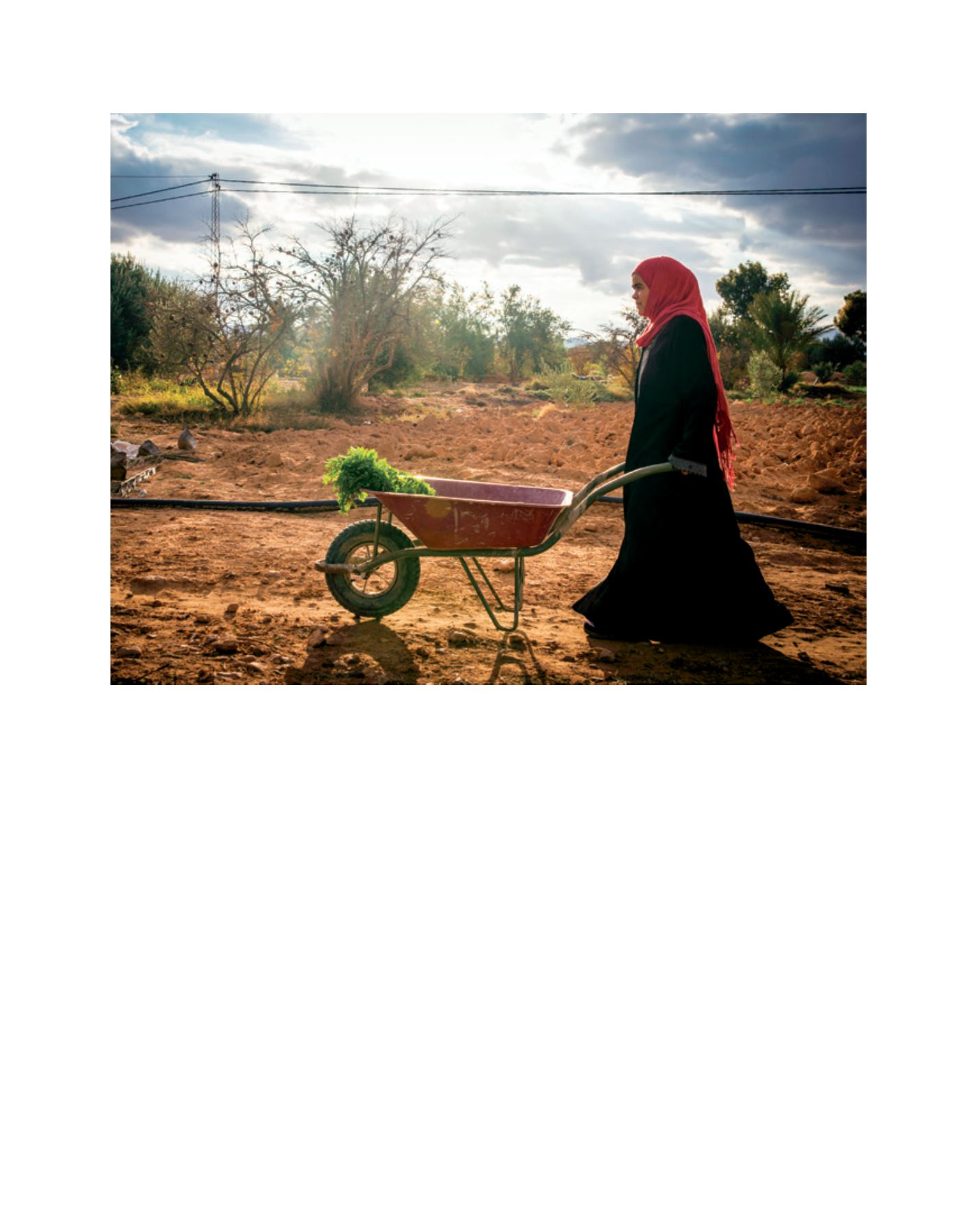

[
] 193
Image: ICARDA
Increasing access to resources and opportunities for women will help to ensure the sustainability of family farms
works to rapidly increase farmer access to improved varie-
ties of wheat. Implemented by the Ethiopian Institute of
Agricultural Research in partnership with ICARDA, the
project strengthened national wheat breeding programmes,
assisting in the development, fast-track testing and release of
rust-resistant varieties.
Since its inception, the initiative has extended its opera-
tions to 45 districts throughout Ethiopia, distributing
approximately 618 tons of quality seed to over 13,200
farmers in affected areas. A further 19,258 tons have
been produced and shared through informal exchange or
formal sale, and 15.7 tons were delivered to small-scale
seed producer associations. In total, an estimated 400,000
hectares of land are now covered with new rust-resistant
wheat varieties, benefiting over 67,600 households. Farmer
field days, including both men and women of the family,
were organized to help spread the knowledge of these rust-
resistant varieties. Village seed-based production systems
and participatory seed multiplication initiatives of the
improved varieties have also facilitated the availability of
improved seed varieties to neighbouring farmers, which
has helped upscale the improved technology. The increased
income from these improved rust-resistant wheat varieties
is now ensuring the economic sustainability of family farms
in Ethiopia, where wheat is a major component of their
production system.
Improving the sustainable use of water resources is vital for
small family farms. Research has focused on improving water
use efficiency while building soil productivity and fertility and
combating land degradation. For example, small-scale mecha-
nized raised bed systems in Egypt – where crops are grown
in elevated wide beds between deep furrows using a simple
machine adapted from the traditional seed drill – is saving 25
per cent of irrigation water while increasing the grain yield of
wheat by 30 per cent. In the Sharkia Governorate in Egypt’s
Delta, family farms have widely adopted this technology –
from 1,670 hectares in 2010 to a 21,250 hectares in 2013.
Conservation agriculture and water harvesting are also
enhancing the environmental and economic sustainability of
family farming in the dry areas. For example, the barley-live-
stock production systems in Jordan and Iraq, which receive
less than 200-350 millimetres of annual rainfall, are benefiting
from zero-tillage. This reduces farmers’ cost of production by
eliminating all costs incurred in ploughing their field, while
conserving moisture because of stubble retention and prevent-
ing evapotranspiration from lower soil depths.
D
eep
R
oots
















